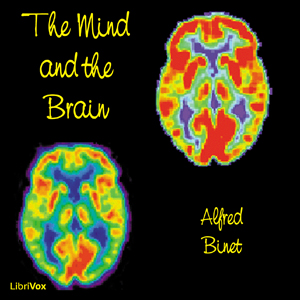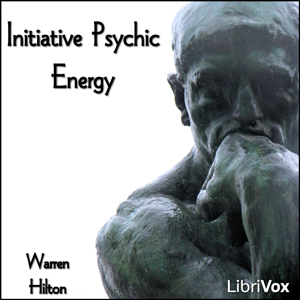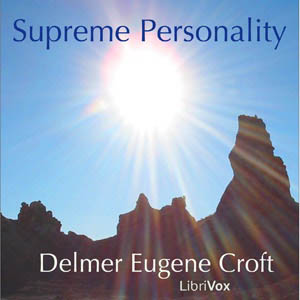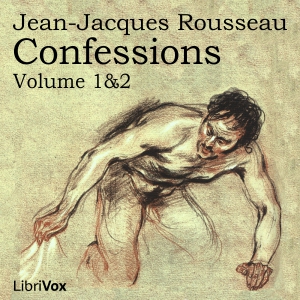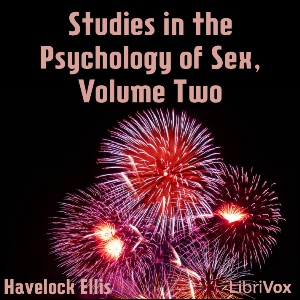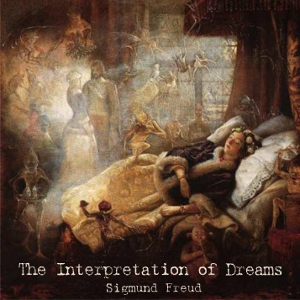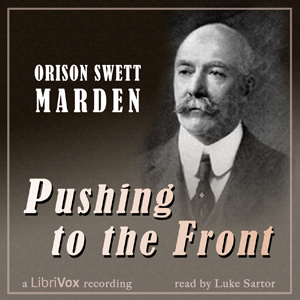The miniature novel Helsinkiin by Juhani Aho was published in 1889. A psychological novel about a young man’s stepping into adult life, it also touches the then heated language politics as Finnish was emerging as a language of academia in the bilingual country. Aho (1861 - 1921) was among the first professional writers in Finland. This reading is in Finnish.
(Summary by Tuija Aalto)
6 episodes
William James (1842 – 1910) was a pioneering American psychologist and philosopher. He wrote influential books on the young science of psychology, educational psychology, psychology of religious experience and mysticism, and the philosophies of pragmatism and Radical Empiricism.Essays in Radical Empiricism is a collection edited and published posthumously by his colleague and biographer Ralph Barton Perry in 1912. It was assembled from a collection of reprinted journal articles published from 1904–1905 which James had deposited in August, 1906, at the Harvard University for supplemental use by his students. (Wikipedia)
15 episodes
The authorized translation of L’âme et le corps, F. Legge, editor“This book is a prolonged effort to establish a distinction between what is called mind and what is called matter. Nothing is more simple than to realise this distinction when you do not go deeply into it; nothing is more difficult when you analyse it a little. At first sight, it seems impossible to confuse things so far apart as a thought and a block of stone; but on reflection this great contrast vanishes, and other differences have to be sought which are less apparent and of which one has not hitherto dreamed.” (from The Mind and the Brain)
19 episodes

In the early 1900's Dr. Maria Montessori began to reform educational methods with her work the 'Case dei Bambini' in Rome, Italy. Montessori began her work by developing methods to educate mentally retarded children, the method she developed was used with several children who at age eight took the state examinations in reading and writing, the children passed with above average scores. Because of this success (which is known as the 'first Montessori Miracle') Dr. Montessori was asked to open a school for children in Rome which she did. It was called the Case dei Bambini or “Children's House”. Now 101 years after the opening of the first Children's House we have recorded the first English translation of "The Montessori Method" by Maria Montessori. This book explains the Montessori Method of Education which supports “spontaneous self-development” of children and is used in the Case dei Bambini as well as many many Montessori Schools through out the world. (Written by Shurtagal and Wikipedia)
23 episodes
A guide to different kinds of dreams, their meanings, and how they influence our waking lives. (Summary by Andrea Fiore)
3 episodes
Learn how to accomplish your goals through increasing your mental power, avoiding energy drains, and becoming more mentally efficient. (Summary by Andrea Fiore.)
5 episodes
Change your life by changing your thoughts. The Majesty of Calmness is your guide to attracting prosperity, manifesting opportunities, and managing stress—all while discovering the values most precious to you. (Summary by Andrea Fiore)
7 episodes
Summary from A Practical Guide to Self-Hypnosis:
This book is written in terms that are comprehensible to the layman. The step-by-step instructions should afford the reader a means of acquiring self-hypnosis. The necessary material is here. The reader need only follow the instructions as they are given. It is the author's hope that you will, through the selective use of self-hypnosis, arrive at a more rewarding, well-adjusted, and fuller life.
13 episodes
Life is self-realization. Every birth is divine. We are born anew every morning. My wish is that you may catch the gleam, be freed from limitations and enter upon your boundless possibilities. To bring you into the throne-room of your being, that you may awaken in self-realization, is why I have prepared this course of lessons. Should you give five minutes a day to them, in a year you will know the joy there is in Life, in Power, and in Service. (from the text)
10 episodes

The Anatomy of Melancholy is a book by Robert Burton, first published in 1621. On its surface, the book is a medical textbook in which Burton applies his large and varied learning in the scholastic manner to the subject of melancholia (which includes what is now termed clinical depression).
Though presented as a medical text, The Anatomy of Melancholy is as much a sui generis work of literature as it is a scientific or philosophical text, and Burton addresses far more than his stated subject. In fact, the Anatomy uses melancholy as the lens through which all human emotion and thought may be scrutinized, and virtually the entire contents of a 17th-century library are marshalled into service of this goal.
Burton is forthright about his intentions in writing the Anatomy — "I write of melancholy by being busy to avoid melancholy," he concedes. This acknowledged desire to distract and amuse himself motivated Burton to produce a wide-ranging document, containing digressions and commentary. Whatever its strengths as a medical text or as a historical document, it is the Anatomy's vast breadth — addressing topics such as digestion, goblins, the geography of America, and others — and the particularly characteristic voice of its author that are most commonly cited by its admirers as the main sources of its appeal. Both satirical and serious in tone, the Anatomy is "vitalized by (Burton's) pervading humour", and Burton's digressive and inclusive style, often verging on a stream of consciousness, consistently informs and animates the text. (Summary from Wikipedia)
53 episodes
In this light-hearted yet thought-provoking collection of articles, Bennett offers his thoughts on exercising the mind, organising your life, the advantages (and disadvantages) of marriage and other pocket philosophies.The book stands the test of time, and much is still relevant and amusing - perhaps even more so, with nearly 100 years of hindsight, than when it was originally written.The book "X" to which Bennett refers in Chapter 5 is An Essay on the Principle of Population by Thomas Malthus, of which there is also a Librivox recording. (Summary by Ruth Golding)
9 episodes
“Thus I have acted; these were my thoughts; such was I.”
Rousseau’s lengthy and sometimes anguished dossier on the Self is one of the most remarkable and courageous works of introspection ever undertaken. Some readers may be repelled by his tendency to revel in embarrassing accounts of humiliation and fiasco, as if he were striving too hard to achieve an ultimate nakedness, a nakedness of the soul perhaps. Others may recall the compulsive self-searching of the narrator of Proust’s A la recherche du temps perdu, who also rather dwelt on the co-existence in the individual of the vile and the virtuous.
The two opening volumes of the Confessions, presented in this inevitably censored edition of 1903, deal with the author’s childhood and callow adolescence.
Here he is... (Summary by Martin Geeson)
18 episodes
“The smallest, the most trifling pleasure that is conveniently within my reach, tempts me more than all the joys of paradise.”
Here again is the youthful, hero-worshipping Jean-Jacques – displaying an emotional immaturity that leads him into picaresque escapades in the company of transients and misfits, always ending in reunion with mother-surrogate Madame de Warens.
In a literally unprecedented gesture of self-revelation, Rousseau opens Volume 3 exposing himself indecently in dark alleyways. This 1903 edition fails to appreciate the humorous strangeness of the passage and removes it to protect the reader.
(Summary by Martin Geeson)
18 episodes
"She was more to me than a sister, a mother, a friend, or even than a mistress, and for this very reason she was not a mistress; in a word, I loved her too much to desire her..."More of the amours of the twentysomething Jean-Jacques: here initiated into a strangely compromised manhood by his "maman" and perennial comforter -"Was I happy? No: I felt I know-not-what invincible sadness which empoisoned my happiness, it seemed that I had committed an incest, and two or three times, pressing her eagerly in my arms, I deluged her bosom with my tears. On her part, as she had never sought pleasure, she had not the stings of remorse..."(Introduction by Martin Geeson)
20 episodes

The Anatomy of Melancholy is a book by Robert Burton, first published in 1621. On its surface, the book is a medical textbook in which Burton applies his large and varied learning in the scholastic manner to the subject of melancholia (which includes what is now termed clinical depression).
Though presented as a medical text, The Anatomy of Melancholy is as much a sui generis work of literature as it is a scientific or philosophical text, and Burton addresses far more than his stated subject. In fact, the Anatomy uses melancholy as the lens through which all human emotion and thought may be scrutinized, and virtually the entire contents of a 17th-century library are marshalled into service of this goal.
Burton is forthright about his intentions in writing the Anatomy — "I write of melancholy by being busy to avoid melancholy," he concedes. This acknowledged desire to distract and amuse himself motivated Burton to produce a wide-ranging document, containing digressions and commentary. Whatever its strengths as a medical text or as a historical document, it is the Anatomy's vast breadth — addressing topics such as digestion, goblins, the geography of America, and others — and the particularly characteristic voice of its author that are most commonly cited by its admirers as the main sources of its appeal. Both satirical and serious in tone, the Anatomy is "vitalized by (Burton's) pervading humour", and Burton's digressive and inclusive style, often verging on a stream of consciousness, consistently informs and animates the text. (Summary from Wikipedia)
39 episodes
The first of six volumes, this volume covers in extensive detail the topics of "The Evolution of Modesty", "The Phenomena of Sexual Periodicity", and "Auto-Eroticism". Written as an anthropological and psychological study from the point of view of Havelock, the famous British sexologist of the late 19th century, who was also a physician and social reformer. (Summary by Tim Ferreira)
31 episodes
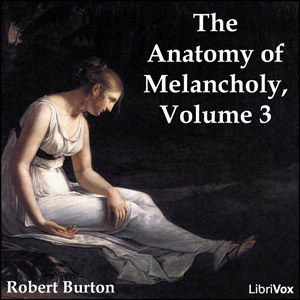
The Anatomy of Melancholy is a book by Robert Burton, first published in 1621. On its surface, the book is a medical textbook in which Burton applies his large and varied learning in the scholastic manner to the subject of melancholia (which includes what is now termed clinical depression).
Though presented as a medical text, The Anatomy of Melancholy is as much a sui generis work of literature as it is a scientific or philosophical text, and Burton addresses far more than his stated subject. In fact, the Anatomy uses melancholy as the lens through which all human emotion and thought may be scrutinized, and virtually the entire contents of a 17th-century library are marshalled into service of this goal.
Burton is forthright about his intentions in writing the Anatomy — "I write of melancholy by being busy to avoid melancholy," he concedes. This acknowledged desire to distract and amuse himself motivated Burton to produce a wide-ranging document, containing digressions and commentary. Whatever its strengths as a medical text or as a historical document, it is the Anatomy's vast breadth — addressing topics such as digestion, goblins, the geography of America, and others — and the particularly characteristic voice of its author that are most commonly cited by its admirers as the main sources of its appeal. Both satirical and serious in tone, the Anatomy is "vitalized by (Burton's) pervading humour", and Burton's digressive and inclusive style, often verging on a stream of consciousness, consistently informs and animates the text. (Summary from Wikipedia)
49 episodes
Habits that Handicap is one of three novels about alcoholism and drug addiction written by Charles B. Towns. Towns was an expert on alcoholism and drug addiction who helped draft drug control legislation in the United States during the early 20th century. He also founded the Towns Hospital in New York City, which aimed at drying out the well-to-do patient. (Summary by Guero and Wikipedia.)
16 episodes
This bittersweet tragicomedy centers on an odd triangle of characters: Basil Ransom, a political conservative from Mississippi; Olive Chancellor, Ransom's cousin and a Boston feminist; and Verena Tarrant, a pretty, young protégée of Olive's in the feminist movement. The storyline concerns the struggle between Ransom and Olive for Verena's allegiance and affection, though the novel also includes a wide panorama of political activists, newspaper people, and quirky eccentrics.(Summary by Wikipedia)
42 episodes

“Society lies under the spell of ancient terrorism and coagulated errors. Science is either wilfully hypocritical or radically misinformed.”
John Addington Symonds struck many an heroic note in this courageous (albeit anonymously circulated) essay. He is a worthy Virgil guiding the reader through the Inferno of suffering which emerging medico-legal definitions of the sexually deviant were prepared to inflict on his century and on the one which followed. Symonds pleads for sane human values in a world of Urnings, Dionings, Urano-Dionings and Uraniasters - in short, the whole paraphernalia of Victorian taxonomies and undigested Darwinism which, superimposed on the “terrorism” of religion, labelled and to some extent created the specimen “homosexual.”
A discussion of the “manly love” poems of Walt Whitman leads the author to speculate on a better future for the criminalised mutual passions of men; yet he is obliged to defer the dream, for “the world cannot be invited to entertain it.” (Introduction by Martin Geeson)
22 episodes
The second of six volumes, this volume covers in extensive detail the topic of "Sexual Inversion", or homosexuality to give it a more current name. Written as an anthropological and psychological study from the point of view of Havelock, the famous British sexologist of the late 19th century, who was also a physician and social reformer. (Summary by Tim Ferreira and John Fricker)
37 episodes
Wells considered this book one of his most important, a natural follow-up to such works as his Man of the Year Million and The Time Machine. His goal was to get people to think and act in new ways. The book starts with a look at how humans get along socially and how they carry out their business ventures. It then discusses how these elements influence others, such as politics, the world of work, and education. H. G. tried to make clear how the current social order was disintegrating without preparing another to take its place. He then traced the roots of democracy, which in its present state he saw as unworkable. Instead, he proposed a new republic. He also critiqued modern warfare. (Summary by Bill Boerst)
18 episodes
This book presents a method of developing and strengthening the faculties of the mind, through the awakened will, by a simple, scientific process possible to any person of ordinary intelligence (Summary by Charles Godfrey Leland) Note: This book was first entitled Have You a Strong Will? In essence, it describes "the secret", the power of positive thinking, and the method of changing your thinking.
14 episodes
Faith and reason, love and virtue, morality and mortality! In these two short volumes the famous novelist, essayist, and playwright, Upton Sinclair, confided his most prized worldly wisdom for generations to come. His kind and witty personal advice both provokes and enlightens page by page. (Summary by Rom Maczka)
36 episodes
Bennett asks us to consider our brains as the most wonderful machine, a machine which is the only thing in this world that we can control. As he writes: "I am simply bent on calling your attention to a fact which has perhaps wholly or partially escaped you -- namely, that you are the most fascinating bit of machinery that ever was."As ever, his prose is honeyed, his thoughts inspired, and his advice as relevant today as when it was written.
16 episodes
A neat book on dream analysis by the founding father of psychoanalysis. This book is about the inner theater and the workings of the mind in the dreaming state. Covering lots of topics, the Austrian psychoanalyst's work on dreams is worth reading for anyone who would get up with a question mark face, trying to remember the dream they had just moments before and trying to understand what message their dream was conveying, if at all it was. (Summary by sidhu177)
47 episodes
These twenty-eight lectures to laymen are elementary and almost conversational. Freud sets forth with a frankness almost startling the difficulties and limitations of psychoanalysis, and also describes its main methods and results as only a master and originator of a new school of thought can do. A text like this is the most opportune and will naturally more or less supersede all other introductions to the general subject of psychoanalysis. It presents the author in a new light, as an effective and successful popularizer, and is certain to be welcomed not only by the large and growing number of students of psychoanalysis in this country but by the yet larger number of those who wish to begin its study here and elsewhere. (From the Preface)
29 episodes
Published in 1894, this is the first book by the renowned inspirational author, Dr. Orison Swett Marden. Pushing to the Front is the product of many years of hard work, and marks a turning point in the life of Dr. Marden. He rewrote it following an accidental fire that brought the five-thousand-plus page manuscript to flames. It went on to become the most popular personal-development book of its time, and is a timeless classic in its genre. Filled with stories of success, triumph and the surmounting of difficulties, it is especially well-targeted at the adolescent or young adult. It is a book to inspire the reader towards a noble sense of integrity, a strong moral foundation, and solid, enduring self-discipline to let the reader put each foot forward as the leader they are meant to be. (Summary by Luke Sartor)
67 episodes
This is a queer book. It is a marriage of the Ancient Occult Teachings to the latest and most advanced conceptions of Modern Science--an odd union, for the parties thereto are of entirely different temperaments. The marriage might be expected to result disastrously, were it not for the fact that a connecting link has been found that gives them a bond of common interest. No two people may truly love each other, unless they also love something in common--the more they love in common, the greater will be their love for each other. And, let us trust that this will prove true in this marriage of Occultism and Science, celebrated in this book. - William Walker Atkinson
17 episodes
The Kallikak Family: A Study in the Heredity of Feeble-Mindedness, written by famous American psychologist and eugenicist Henry H. Goddard, is a famous but controversial extended case study following the Kallikak family (a pseudonym from the Greek words Kallos "beauty" and Kakos "bad") for the inheritance of "feeble-mindedness," a general category referring to a variety of mental disabilities including mental disabilities, learning disabilities, and mental illness.
Goddard concluded that a variety of mental traits were hereditary and society should limit reproduction by people possessing these traits, which in turn helped to spur on the destructive eugenics movement, especially in the United States.
Note: For the charts printed in Chapter II and referred to throughout the text, please refer to a visual copy of the book. - Summary by Mary Kay and Wikipedia
7 episodes
"We are to study the mind and its education; but how? It is easy to understand how we may investigate the great world of material things about us; for we can see it, touch it, weigh it, or measure it. But how are we to discover the nature of the mind, or come to know the processes by which consciousness works? For mind is intangible; we cannot see it, feel it, taste it, or handle it. Mind belongs not to the realm of matter which is known to the senses, but to the realm of spirit, which the senses can never grasp. And yet the mind can be known and studied as truly and as scientifically as can the world of matter." This book of over a hundred years is full of useful and practical information. The author's elegant use of referencing poetry and literature in forming mental images as a way of educating our creative minds makes for a most pleasurable read. - Summary by Mike Justice and from the text
19 episodes

Swedenborg, Emanuel, 1688-1772, was born in Stockholm, Sweden and died in London, England. He was a voluminous writer of scientific treatises as well as prophetic works such as Archana Caelestia and The Divine Providence. He said he had encountered supranational agencies and communicated with angels. This is a recording of the 1849 translation of his 1743 book The Soul or Rational Psychology (Regnum Animale, Pars Septima De Anima) Latin. He took his cue from Aristotle's De Anima.
A few quotes
It has been shown above that the harmonies themselves are innate with us, or that we perceive them without a teacher; as the sweetnesses of taste and smell, the symmetries of sound, the excellencies and beauties of nature; in a word, the very order of things or the harmony of modes, forces, substances, and forms. Thence also we may perceive the very truths of things, for these correspond to the order itself in nature; and this is the reason why order is called "the transcendental truth."
In order that the human intellect may exist, it is necessary that the truths themselves be variegated and as it were modified by things mendacious, or true things with false, good with evil.
There are as many worlds as there are terrestrial societies, and there are as many heavens as there are celestial societies. The love of society is both natural and acquired, for to live alone or to live without society is not to live, for whatever is one's own is not known as one's own except from others, or relatively.
When we strive for and desire what we love, and yet impossibilities interfere with our attaining our end, we call this state of desire hope, and it seems to be in the will viewed as an endeavour which these obstacles are preventing from coming forth into act and motion. Thus hope is not an affection of the mind, but of its will. For the will always endeavours to act, but so long as it is resisted does not act. Meanwhile it is affected by a certain hope, so that it remains balanced between action and inaction. Despair exists when we cut off hope; then also when, in the end itself, love and ambition, that is, the life and ardour of the mind, collapse and are as it were extinguished.
There is a liberty of thinking and a liberty of acting; and in the middle between these two there is as it were the liberty of choosing , in which properly free will consists; and that our mind is not capable of ruling whether the objects of the senses and their exciting influences, both from the body and the world, shall flow in or not, but it is capable of choosing whether these sensations and excitements shall flow out and be determined into act."
This third edition of the 1849 translation was published in 1914. Johann Friedrich Immanuel Tafel, 1796-1863 devoted himself to translating Swedenborg into German, and Frank Sewall, 1837-1915 into English. Sewall included a long introduction and three appendixes to Swedenborg's work. The introduction is included in this reading but the appendixes have been omitted.
49 episodes

In this little book Freud discusses three areas of human sexuality:
1. Sexual pervisons or abberations. In this essay, Freud concludes that "a disposition to perversions is an original and universal disposition of the human sexual instinct and that...this postulated constitution, containing the germs of all the perversions, will only be demonstrable in children“.
2. His second essay on "The Infantile Sexuality", argues that children have sexual urges, from which adult sexuality only gradually emerges via psychosexual development. Looking at children, Freud identified many forms of infantile sexual emotions, including thumb sucking, autoeroticism, and sibling rivalry in childhood.
3. In his third essay, "The Transformations of Puberty", Freud formalized the distinction between the 'fore-pleasures' of infantile sexuality and the 'end-pleasure' of sexual intercourse. He also demonstrated how the adolescent years consolidate sexual identity under the dominance of the genitals in puberty.
Originally published in 1905, Freud added significant insights over the next three editions to increase the length to about double it's original size. This is the third and last edition published in 1920. (Summary by Phil Chenevert and Wikipedia)
10 episodes

After an introduction to the Ole Jerry McAuley Mission in the year 1912, many wonderful stories of destitute alcoholics and addicts making a quick recovery through a surrender to Christ Jesus.
The book gives glimpses that the years of the highly esteemed Samuel H. Hadley have allowed for the “Evangelical Podium” to firmly take root in the Mission and is corroding the original purpose (the original purpose of this mission was to provide a place for chronic alcoholics and addicts who had spiritual experiences during incarceration to continue it outside of prison and not end up back at their old haunts after being repeatedly rejected by churches and society).
The book tells of the on-goings in the new Ole Jerry McAuley Mission at 316 Water Street, NYC, during the early 1900's. Many things seem to have changed since the 1870's when Jerry McAuley ran the mission. First, anyone was welcome. Second, the years of sobriety touted in this book were two to five, as opposed to the decades and quarter centuries in its earlier times. Thirdly, advertising their mission, or testifying for the mission was the goal as opposed to living a spiritually guided life. This book tells of many great successes but it wasn't achieving the same high success rate. (Summary by Curt Walton)
16 episodes
A collection of essays relating to the efforts to reorganise American schools to provide a more efficient and effective education system. Also includes discussions on adjustment rooms for students with special educational needs. Edited by Lewis Terman with co-contributors including Virgil E. Dickson, A. H. Sutherland, Raymond H. Franzen, C. R. Tupper, Grace Fernald. (summary by niobium)
7 episodes
Old buildings necessarily have a history. It is not always a happy history and folklore abounds. Sometimes unhappy souls come back to haunt the current residents or their guests. Whether you believe in ghosts or not, these narratives provide a fascinating insight into the history of the buildings and the hysteria they may induce. - Summary by Lynne Thompson
19 episodes
Wrong thinking produces inharmony in our body, which in turn produces sickness. Our bodies sometimes are instantly re-harmonized while in the Silence. In the Silence our minds become passive, open, free and loving, at which time the Infinite Master of harmony touches the mental chords of our being and we are well. - Summary by David Van Bush
12 episodes
Wilhelm Stekel was an Austrian physician and psychologist and one of Freud’s earliest followers. This title, originally published in 1921, was the author’s favorite of his own work. Covering a variety of topics he takes a psychoanalytic look into The Depths of the Soul.
25 episodes
Surely all of us know fear, and know the different types of fear we can experience. In this book, Arthur Christopher Benson walks us through these different types, going through a range of different topics, among others childhood fears many of us will remember, to the fears plaguing us in other periods of our lives, the origins of different fears, and essays on what a number of notable authors (of fiction) had to say about the subject. It should be noted that this book is not a scientific study, though written by an eminent scholar. Instead, all of Arthur Christopher Benson's remarkable talents as a story teller are shaping these chapters. - Summary by Carolin
20 episodes

John Locke wrote four essays on human (or humane) understanding. Here are a few quotes from the book: "I see no reason to believe, that the soul thinks before the senses have furnished it with ideas to think on. The dreams of sleeping men are, as I take it, all made up of the waking man's ideas, though for the most part oddly put together. Can the soul think, and not the man, or a man think, and not be conscious of it? Suppose the soul of Castor separated, during his sleep, from his body, to think apart. Let us suppose too, that it chooses for its scene of thinking the body of another man, v. g. Pollux, who is sleeping without a soul. Nobody can imagine that his soul can think, or move a body at Oxford, whilst he is at London. The question is, whether if the same substance which thinks, be changed, it can be the same person; or, remaining the same, it can be different persons? Whiteness and coldness are no more in snow than pain is."John Locke wrote four essays on human (or humane) understanding. The first and second have been recorded into LibriVox. This recording is a repetition of the second of Locke's Essays. All of his essays were, and are, very influential. Edward Stillingfleet 1635-1699 (Bishop of Worcester) wrote a Critique of Locke’s ideas and many letters to him. Locke’s Essays inspired Gottfried Leibniz (1646-1716) to write his New Essays Concerning Human Understanding and Victor Cousin analyzed all four books in his 1834 Elements of Psychology. - Summary by Craig Campbell
32 episodes
Theophrastus ( c. 371 – c. 287 BC) was an ancient Greek philosopher, successor to Aristotle in the Peripatetic School. He wrote on many topics: biology, geology, physics, metaphysics, psychology, ethics, logic – and more. His book Characters… contains thirty brief, vigorous, and trenchant outlines of moral types, which form a most valuable picture of the life of his time, and in fact of human nature in general. They are the first recorded attempt at systematic character writing. “Apart from slight variations of local coloring and institutions, the descriptions of the old Greek philosopher might apply almost as well to the present inhabitants of London or Boston as to the Athenians of 300 B.C.” This edition contains an extensive and informative introduction to the man and his thought. - Summary by Book Introduction, Wikipedia, and David Wales
4 episodes
In Vino Veritas is one section of Kierkegaard's Stages on Life's Way, originally published in 1845. In a conscious reference to Plato's Symposium, it is determined that each participant must give a speech, and that their topic shall be love. Lee M. Hollander said, "it excels Plato's work in subtlety, richness, and refined humor. To be sure, Kierkegaard has charged his creation with such romantic superabundance of delicate observations and rococo ornament that the whole comes dangerously near being improbable; whereas the older work stands solidly in reality." Some of the speakers in this book are charcters from Kierkegaard's other books. Victor Eremita, Judge William, and Johannes the Seducer were all from Either/Or (1843) and Constantin and the Young Person were from Repetition (1843). (Summary by Soupy)
7 episodes
In this series of lectures delivered in English by the author while visiting the USA, Janet summarises the (at the time) cutting edge perspective on the various forms of hysteria. The syndromes include generalised amnesic states and conversion disorders, and show Janet's highly influential views regarding the fundamental role of dissociation. The lectures provide an insight into the development of this area of psychiatry out of the neurological field of the nineteenth century, with Janet dropping some famous names from the history of medicine. ( Peter Tucker)
16 episodes

Johanne Fichte published The Destination of Man (Die Bestimmung des Menschen) in 1799. It was translated into English in 1846 by Jane Sinnett and then again in 1848 by William Smith. Fichte says his book is designed to "raise [the reader] from the sensuous world, to that which is above sense." Francis Bacon said, in The Advancement of Learning, "the two ways of contemplation are not unlike the two ways of action commonly spoken of by the ancients; the one plain and smooth in the beginning, and in the end impassable; the other rough and troublesome in the entrance, but after a while fair and even. So it is in contemplation; if a man will begin with certainties, he shall end in doubts; but if he will be content to begin with doubts, he shall end in certainties." Rene Descartes said "in order to seek truth, it is necessary once in the course of our life, to doubt, as far as possible, of all things." Fichte moves from doubt to knowledge and finally to faith in his exploration of the self. (Summary by Craig Campbell)
19 episodes

Famous criminologist, anthropologist, and psychiatrist, Dr Lombroso, investigated the memetic anecdotal belief that genius is associated with degenerative symptoms, or may even be a version of insanity, and presented his findings as a fascinating and controversial theory that the creative and imaginative celebrities throughout history have also displayed what he termed as "atavistic" symptoms, or defects resembling what is commonly seen in the unwell. Citations of evidence are drawn from a rich variety of references sources, including autopsy reports of brains and skulls, biographical data, the influence of environmental and seasonal changes on inventiveness, and even from the records of thousands of admittance into prisons and asylums of France and Italy. This book can be considered as a sort of sequel to his better known and also highly controversial theories about criminality associated with physical manifestations, often categorised as "psuedoscience". However, it should be noted that although his claims are factual and verifiable, his choice of selective evidence and the absence of a control group should be considered when reading the book. - Summary by Leon Harvey
21 episodes
Jung says the following in his introduction: "in these lectures I have attempted to reconcile my practical experiences in psychoanalysis with the existing theory, or rather, with the approaches to such a theory." He goes on to say, "Here is my attitude towards those principles which my honored teacher Sigmund Freud has evolved from the experience of many decades." Some topics considered in this light are infantile sexuality, the conception of the libido, the unconscious, the dream, repression, and the etiology of neuroses.
13 episodes
The author describes popular ghost occurrences from a skeptical point of view, providing explanations based on recent scientific research (early 20th century), primarily in the field of psychology, like suggestion and hallucinations, using also his beliefs on mesmerism and telepathy. He finishes his book with a brief mention of ghost hunters and researchers into psychic phenomena. - Summary by Rapunzelina
12 episodes
A biography of a woman who advocated for the humane treatment of people with mental illness. As a young woman travelling overseas, Dorothea Dix met with people who were interested in reforming how the mentally ill were treated. Returning to America, she pushed for changes and proper care for these individuals, meeting with strong resistance. Her work ultimately resulted in social reform and the creation of asylums. Dorothea Dix was a tireless crusader and instrumental in important social reforms in the United States and the world. - Summary by Phyllis Vincelli
33 episodes


